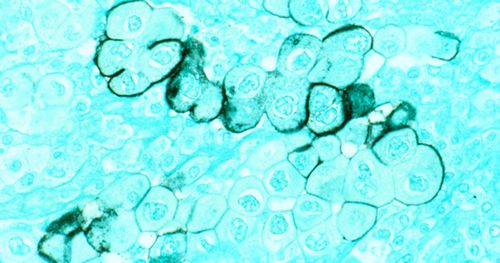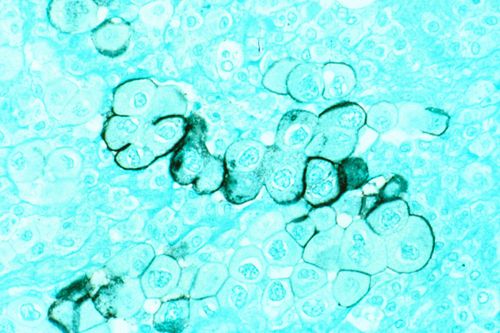Researchers See Promising Results in Early Trial of mRNA Vaccines for Pancreatic Cancer

Personalized mRNA vaccines show promise as pancreatic cancer treatment, a phase 1 clinical trial published Wednesday in Nature found. Fewer than 13% of people diagnosed with pancreatic cancer live for more than five years, making it one of the deadliest types of cancer. That is, in part, because around 90% of cases are diagnosed when the disease is already advanced. Pancreatic cancer cells also spread to other parts of the body much earlier on than in other cancers, which typically spread only when the original tumors are large. The disease typically doesn’t cause symptoms until later stages and there isn’t a routine screening for this cancer, such as a mammogram or colonoscopy.

An experimental approach to treating pancreatic cancer with the messenger RNA (mRNA)-based therapeutic cancer vaccine autogene cevumeran continues to show potential to stimulate an immune response that may reduce the risk of the disease returning after surgery in a small patient group. New results from the phase 1 clinical trial, now published in the journal Nature, show that the therapeutic cancer vaccine activated tumor-specific immune cells that persisted in the body up to nearly four years after treatment in some patients. In addition, patients with a vaccine-induced immune response had a reduced risk of the cancer coming back at a three-year follow-up compared with patients whose immune systems did not respond. “The latest data from the phase 1 trial are encouraging,” says Vinod Balachandran, MD, principal investigator of the trial and senior author of the new publication. “They suggest this investigational therapeutic mRNA vaccine can mobilize anti-tumor T cells that may recognize pancreatic cancers as foreign, potentially years after vaccination.”

(CBS News) --- When a routine scan led to Barbara Brigham's pancreatic cancer diagnosis in 2020, all she could think about was how she wanted more time. Her husband had just passed away. She loved her local library job. Her three children were still growing their own families.

Fewer than 13% of people diagnosed with pancreatic cancer live for more than five years. Around 90% of cases are diagnosed when the disease is already advanced. There isn't a routine screening for this cancer, such as a mammogram or colonoscopy. Once it’s detected, there are few effective treatments.
